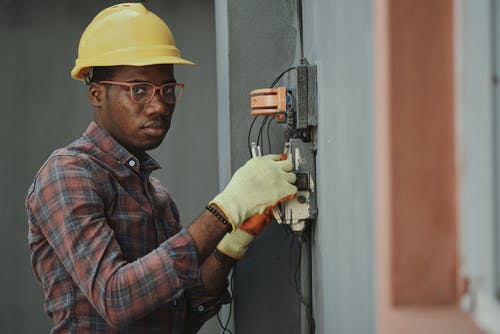The job of an electrician is just as high-stress and emergency-based as that of a doctor.
There are situations in which businesses have shut down due to an electrical fault, homes might be at risk due to poor wiring, and the work of an electrician itself can be a dangerous situation. The work environment is not always safe and one wrong move can be very costly. Also, you have to deal with all kinds of situations.

Sometimes the place where you are carrying out the work has not been maintained according to proper methods and it can be a nightmare to have to find your way through unmarked and mixed-up wiring. Moreover, modern electrical appliances and the role of electricity in modern homes are very different from what they used to be just a few years ago.
Among all these challenges electricians still strive to give their customers the most efficient services possible while keeping costs and work time to a minimum. In order to make the most of the work that you do, these are some important things to keep in mind.
1. Following Proper Procedures
Whether you are changing a bulb or reinstalling the main electrical system for a manufacturing plant, there is a proper way to do it. Cutting the corners and skipping steps might save you a bit of time and money but it won’t be worth it in the long run. The risks are high and you are only making it more expensive for the property owner to manage the property. Moreover, you are also complicating the task for other electricians who will come to work on the site, and eventually, the property owner has to bear the cost.
2. Circuit Breakers Help Wiring
More often than not you will come across wiring that is outdated and unable to bear the burden of the high voltage appliances that it is supporting. The ideal solution is to change out the wiring, install a fresh line of copper and also address old, worn-out sockets. However, this is not always a possibility, especially in large homes where you have no way of tracing the wiring network. The best solution for this problem is breakers. Large breakers that have the capacity to handle the voltages required from the system. This is a quick fix that only takes a few moments to do.
3. Tracing Wires In The Wall
Sometimes there is no option but to trace the wires in the wall and either repair the faulty joint or pull out the entire length and replace it with fresh wire. In some cases, you might want to create a wire network in a new portion of the house that mimics the layout in the rest of the house. Whatever the case may be the specialist at asktheelectricalguy.com/ suggests that you get the right tools for the job. These can be inexpensive devices such as the magnetic stud finder or the slightly more modern audible voltage detector. Depending on the situation different devices may be better suited for the task of finding a wire. If you are looking for an all-in-one solution consider a neon voltage detector.
4. Using Insulation
As more homes now shift towards getting the walls, roofs, and even floors insulated, it is crucial that utility lines running through these areas of the house are insulated. Also, you need to make sure that the kind of insulation you are using on the electrical wires is strong enough to stand up to the abrasive chemicals used in wall insulation. Oftentimes portions of the home will be sprayed with foam insulation which takes a few moments to rise so you also need to ensure that the wires you are putting down have enough give in them to be able to compensate for a little bit of movement as it rises with the insulation foam. Ideally, if you are running thick wires, or bundles of wires through a part of the home you should consider putting it through a conduit to improve insulation and also extend the life of the cables.
5. Safety Gear
Just as you watch out for the safety of the clients that you work for you also need to ensure you have everything you need to keep yourself safe at work. Proper work boots that provide an insulated sole, a good pair of gloves, a fire extinguisher for emergency situations, and plenty of tools that will help you gauge the situation before you dive in with your hands.

Also, as you are constantly interacting with people from all over the city, you need to ensure you are taking precautions in social distancing and always wearing a mask. Not only are you at risk on your own but you are also at risk of transferring the disease to other people. Ideally, you should have a sanitizer with you at all times and you should wipe down the equipment that you use after every job.
















